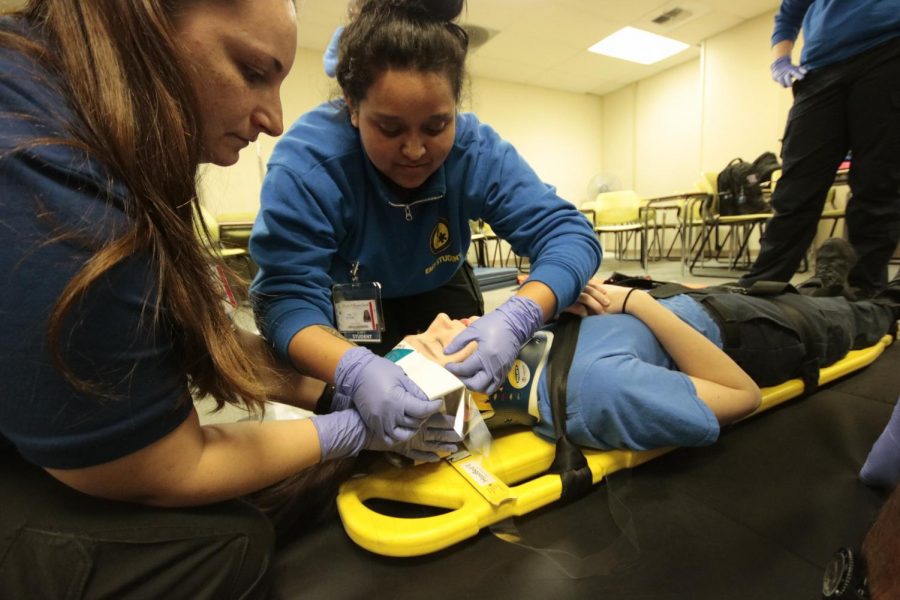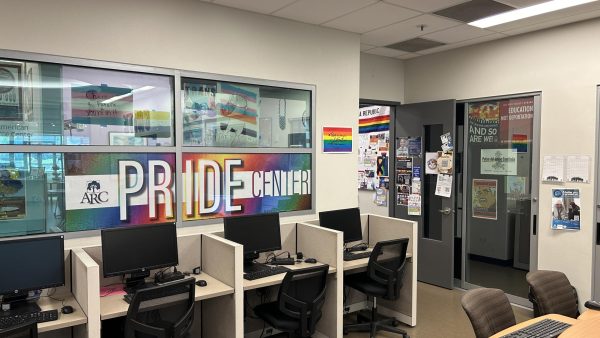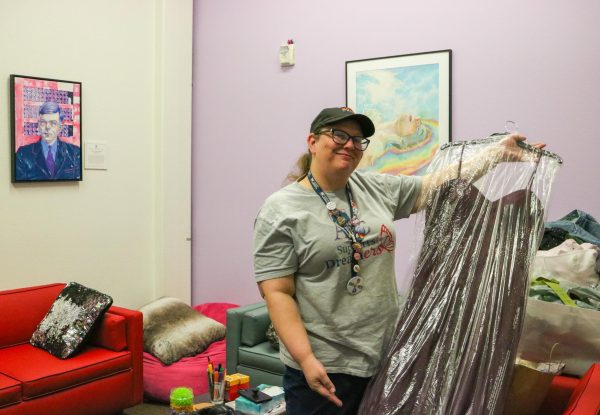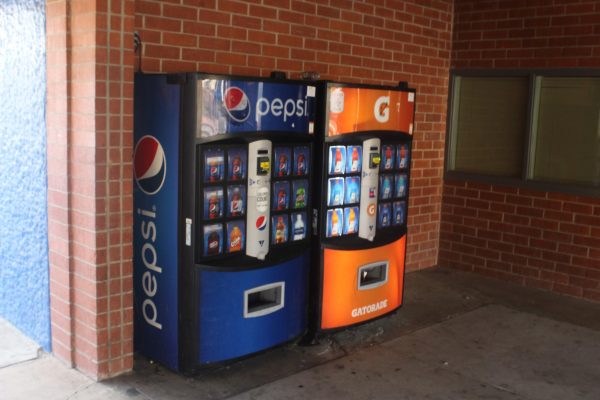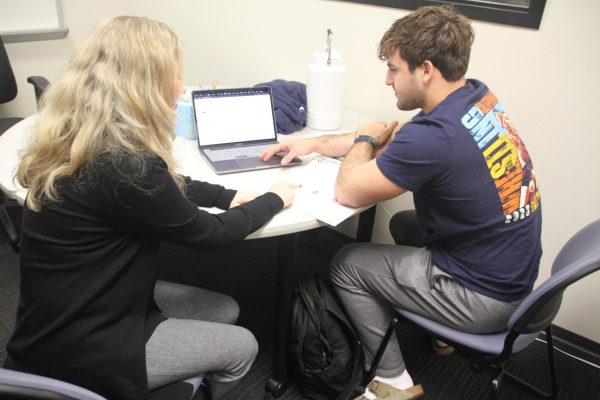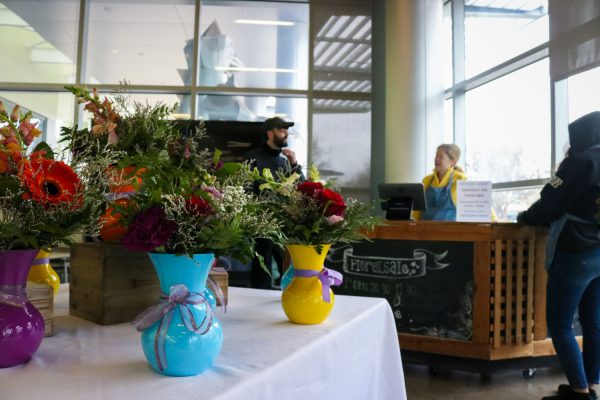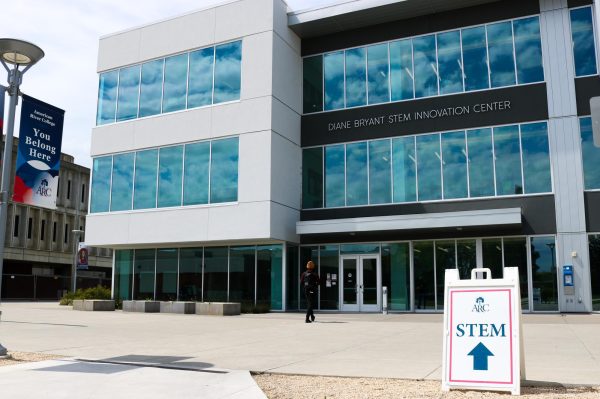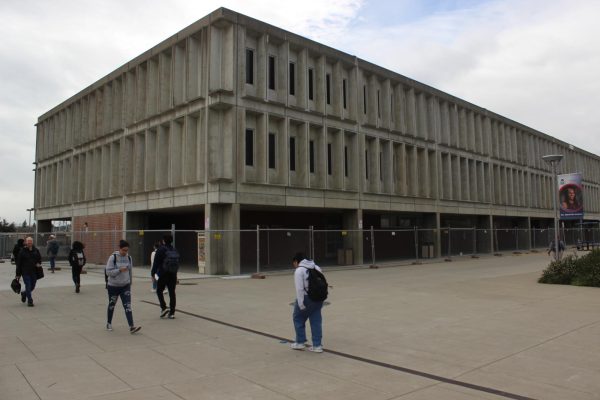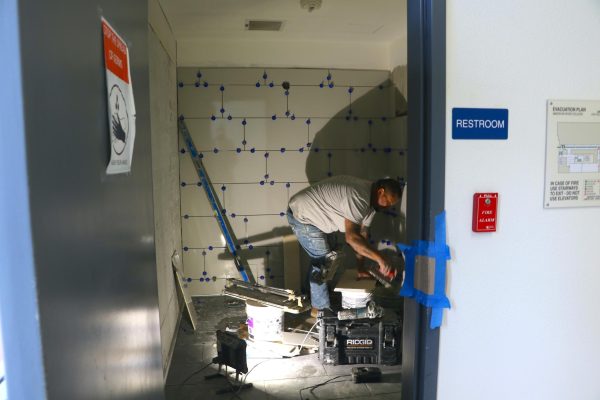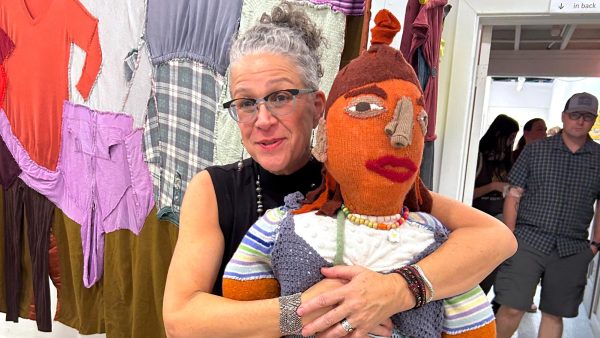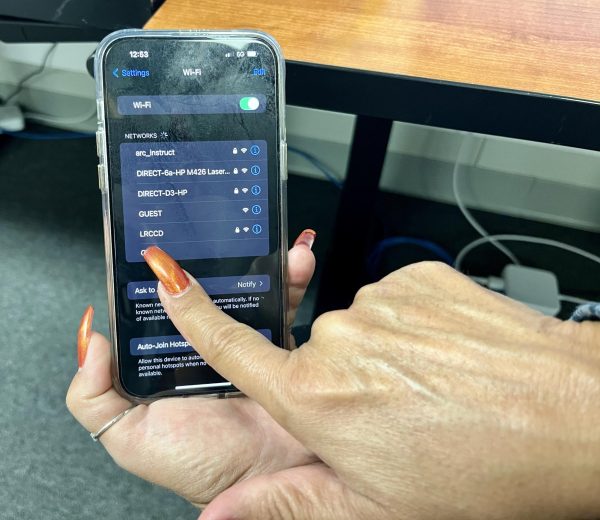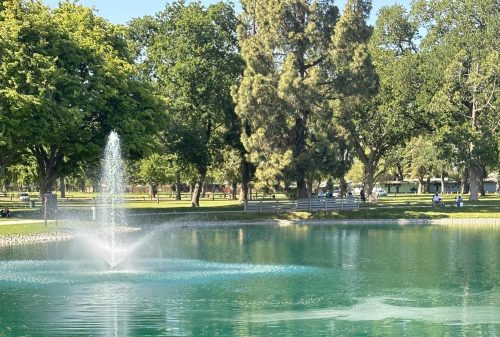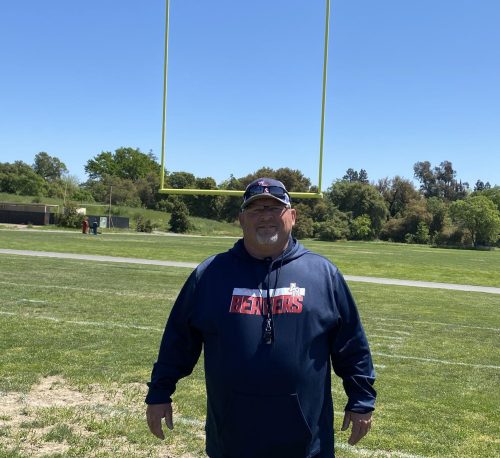EMT program at ARC still on campus, deals with new adaptations
The Emergency Medical Technology Program at ARC adapts to pandemic life
Anysia Hernandez, an EMT program major, simulates a cervical immobilization on a stretcher that is made for trauma patients. This photo was taken before the campus shut down on March 18, 2020. (Photo by Emily Mello)
With the setbacks COVID-19 created this year, the Emergency Medical Technology program at American River College has been adapting since the campus shut down on March 18. The program is one of the few authorized programs allowed to hold face-to-face classes on campus this semester.
Even after the campus shut down last semester, the program was able to continue remotely, with students able to learn the practical skills needed for the class through Zoom.
Grant Goold, the program’s department chair, gave his insights about how the program has been operating after being authorized to be on campus and the guideline procedures they are implementing to prevent students and instructors from being contaminated.
“After an unexpected break in the semester back in March, it took quite a while for us to kind of reorganize and reconsider all the options that we were facing, because our department [is] overseen by the governmental agencies and the third party created agencies”. Goold said, “We were waiting to see what kind of standards they would change for us to move forward.”
Goold stated how he and the program worked to create a safe environment so the EMT program could go back on campus for this semester and keep working face-to-face.
“[This summer] we received a notification using a very strict COVID-19 safe protocols and now we have paramedical students and an EMT program on campus, working face-to-face [with] appropriate size cohorts [that are] able to work outside and run calls and scenarios”, Goold said. “Overall, even [though] it has been climbing Mt. Everest, we have been able to get work accomplished and students are doing great.”
Looking ahead to next semester, the program will introduce virtual reality learning, which students will be able to due to the procedures even with more efficiency
“One of the requirements that the students have with this program is to put their knowledge from their heads to their hands that require them, one scenario from the real world is a 911 call,” said Goold. “The faculty would build the scenario that requires the students to take the knowledge that they learn and get a dispatch to a situation.”
Goold says comments on how technology has been helping students improve on their skills and performance in the program
“We are using a program that allows the students to emerge in 2D, through their computer or their device they can watch virtual reality scenarios;” Goold said. “And interact with their scenario and will be available for us to evaluate their performance.”
Asa Simien, an EMT student, commented on the guidelines that they have to follow every day so they can be working face-to-face again on the college campus classrooms
“The main difference that we are having now is that we are having to wear a mask all-time when we are on campus”, Simien said. “We have to fill out the COVID-19 screen form to make sure we are not having any symptoms.”
Simien highlighted how hard it was at the beginning of the shut down since they were not able to do much of the practice procedures that the class requires the EMT students to do but after they were authorized to be on campus things got a lot easier for the program in general
“In the beginning, it was all Zoom for about a month so we weren’t able to do much practice so now that we are allowed to be back on campus we have plenty of time to do that now,” Simien said.
He also emphasized how important was the professors’ support during those difficult times and how they were very helpful with the students in so many different ways.
“They have been giving extra time with we need to study and if we missed a day and we want to get more practice we can come with our cohorts,” Simien said. “We can choose between Monday and Wednesday and they will come and assist us with whatever we need, so that has been pretty good”.

